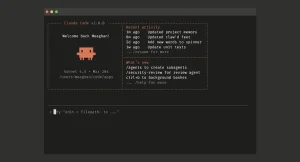Revolutionizing AI: The Emergence of Manus-Beating Agents

In the rapidly evolving world of technology, AI continues to break barriers and reshape our capabilities. Today, we witness a remarkable breakthrough in AI agents that challenges previous benchmarks. As competition intensifies, innovations arise that promise to transform our everyday lives and industries.
With fierce advancements and major shifts on the horizon, AI startups are pioneering tools that not only compete but surpass industry-leading models. This signifies the dawn of a new era, where creative ideas meet technological prowess, changing how we work and live. Let’s explore these exciting developments.
The Rise of Genspark’s Super Agent
Genspark has unveiled a groundbreaking AI agent, touted as a Manus-toppling force. Backed by a $100M funding round, this Super Agent surpasses the viral Manus agent and OpenAI’s Deep Research model in GAIA benchmarks. It’s not just about simple tasks; it can handle complex projects like planning travel, booking hotels, and more. Such advancements underscore how AI agents are becoming more autonomous and versatile.
Meanwhile, another startup, General Agents, introduced a novel ‘real-time computer autopilot.’ This technology uses your mouse and keyboard to autonomously perform tasks like booking an Airbnb. It’s a testament to how human-computer interaction is being redefined for convenience and efficiency.
Anticipating AGI by 2030
DeepMind, a significant player in AI research, forecasts the realization of Artificial General Intelligence (AGI) by the end of this decade. They predict AI will outperform 99% of adults in most tasks. This prediction fuels a debate over AI safety, as new models excel at mimicking human interaction with an unprecedented level of realism.
A recent study from UC San Diego reports Large Language Models (LLMs) have passed the Turing Test. This milestone means people now struggle to distinguish between AI-driven conversations and those with humans, raising discussions about the ethical implications and potential misuse of AI.
Meta’s AI Glasses – The Next Frontier
Meta is poised to release a premium version of its Ray-Ban smart glasses, priced at over $1,000, later this year. These glasses will include a screen, enabling users to navigate apps with wrist gestures. It’s a step forward in wearable technology, enhancing how we interact with the digital world.
These glasses are expected to offer features like GPS directions, photo capturing, and messaging. Expected future versions will cater to specific needs, such as sports enthusiasts, showcasing increased integration of AI into our daily gadgets, making them more indispensable.
Innovating with AI – RYSE’s Smart Shades
RYSE is rapidly gaining attention in the smart home market, potentially revolutionizing how we view everyday window shades. After a notable pitch on Canada’s Shark Tank, their innovative smart shades are accessible in major retailers, poised to disrupt a $158B market.
These smart shades allow users to control light and privacy settings via a smartphone app. This innovation reflects a growing trend of integrating AI within our homes, optimizing living spaces for comfort, security, and energy efficiency.
Bolt – Transforming Ideas into Apps
Bolt’s AI coding platform is transforming the landscape for app development, allowing those without coding skills to bring their ideas to life. An intuitive interface similar to ChatGPT lets users create applications with simple text prompts, making software development more accessible than ever.
As Bolt rapidly expands its user base, reaching millions in months, it shows no signs of slowing down. Models like Claude 3.5 and 3.7 enable efficient and accurate coding, drawing more individuals into the world of tech innovation. Here, even those with limited technical expertise can transform their visions into reality.
Exploring New Dimensions in AI Design
The ability to redesign spaces through AI has never been more accessible. Platforms like ChatGPT allow users to visualize changes in their homes or offices simply by uploading a photo and describing alterations, such as color changes or adding furniture.
This capability exemplifies the merging of technology and creativity, where anyone can experiment with interior design ideas virtually, assessing potential modifications without committing to physical changes.
The Future of AI Consulting
Aspiring AI consultants now have a structured pathway to enter this growing field. Training programs such as The AI Consultancy Project equip individuals with the necessary tools to build a successful consultancy business, emphasizing skills and a strategic approach.
Participants gain knowledge on tools, frameworks, and business strategies, fostering innovation and growth in AI applications. As industries increasingly rely on AI, opportunities for consultants who can navigate this complex landscape are expanding rapidly.
Understanding Evolving AI Tools
The toolkit for enhancing productivity with AI continues to expand. Tools like Lindy automate tasks such as meeting preparation and sales calls, while Findr helps users organize scattered information, enhancing efficiency and focus.
Other tools, like ModelMatch, Flora, and Focal, cater to diverse needs, from image analysis to creative content generation. These AI innovations ensure that productivity enhances not just in the workforce but also in personal projects, allowing users to achieve more with less effort.
The increasing reach and capability of AI agents signal a significant shift in technology’s role in our lives. As AI becomes more integrated, it offers unprecedented opportunities and challenges. With these advancements, the potential for creative and practical applications is limitless, inspiring us to imagine what may come next.






